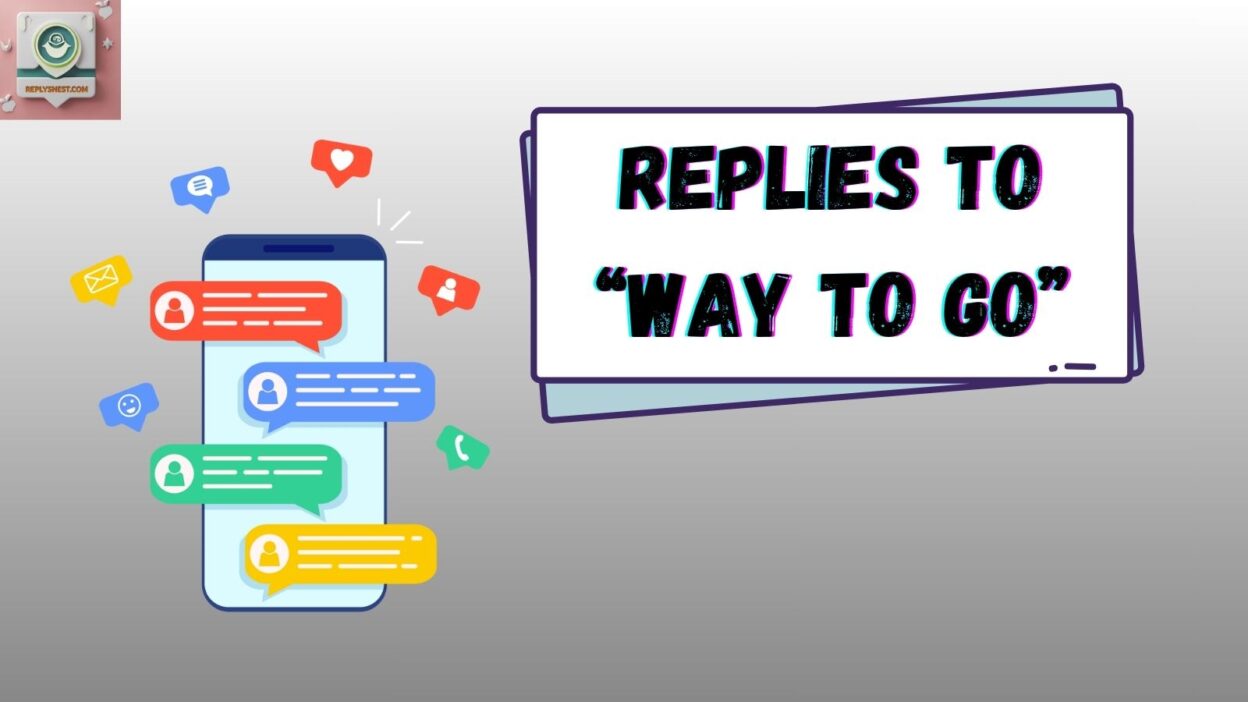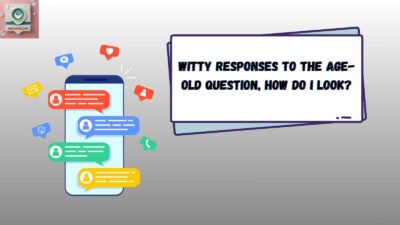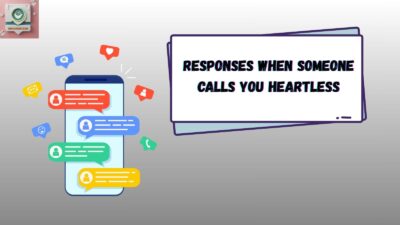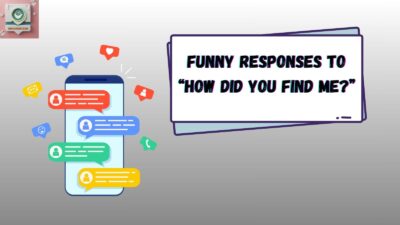When someone says “Way to go,” it’s their way of cheering you on, celebrating your effort, or appreciating your achievement. It’s short, positive, and uplifting. But sometimes, you want to respond with something warmer than just a plain “thanks.” That’s where this guide comes in. Replies to “Way To Go”.
When someone says “Way to go,” a simple thank you or thanks may feel like the most appropriate response, but you can also add a little more heart. In my own daily interactions, I’ve noticed that recognizing someone’s support can make the situation warmer. For example, during a challenging project at my workplace, when a colleague said it, I replied, “I really appreciate it, your encouragement helped me stay focused through the sweat, tears, and late-night coffee runs.” That small mention of effort added context and showed genuine gratitude. Instead of just keeping it casual, you can use a slightly different version that conveys recognition and gives the other person their share of praise too.
I’ve also found that playfully mixing in imagery or emotion makes replies more memorable. Once, after finishing a task that had me dodging metaphorical flames and beating a tight deadline, I smiled and said, “Your words are like fireworks on a rainy day, they boost my confidence and calm the storm inside.” This kind of reply not only shows you’re glad the effort paid off, but it also reflects your accomplishments without sounding embarrassed. Whether you speak of being on cloud nine, receiving an imaginary gold medal, or joking about joining an amazing club of achievers, the key is to keep it polite, uplifting, and tailored to the context. A mix of humor, positivity, and genuine acknowledgment turns a simple line into a thoughtful exchange that strengthens connections and leaves a lasting impression.
1. “Thanks, that means a lot.”
Best use: When someone’s encouragement feels genuine and you want to show gratitude.
Not to use: In lighthearted, playful moments—it might sound too heavy.
Other ways to say: “I appreciate that,” “That really means something.”
Example: Your mentor says “Way to go!” after your presentation → “Thanks, that means a lot.”
2. “I couldn’t have done it without you.”
Best use: When you truly had help from the person praising you.
Not to use: If it was a solo effort—they may think you’re being insincere.
Other ways to say: “Your support made the difference,” “Thanks to you too.”
Example: Friend says “Way to go!” after you aced an exam they helped you study for → “I couldn’t have done it without you.”
3. “Glad you noticed!”
Best use: Lighthearted reply that shows confidence.
Not to use: In formal settings—can come off as cheeky.
Other ways to say: “Happy you caught that,” “I’m glad it stood out.”
Example: Colleague says “Way to go!” after you solve a problem → “Glad you noticed!”
4. “Thanks, I’ve been working hard on this.”
Best use: When you want to acknowledge your effort without bragging.
Not to use: If the task wasn’t actually hard—you’ll seem insincere.
Other ways to say: “It took some effort,” “Hard work paid off.”
Example: Boss says “Way to go!” on a project → “Thanks, I’ve been working hard on this.”
5. “Means a lot coming from you.”
Best use: When you respect the person praising you.
Not to use: If the person is joking around—it may sound too serious.
Other ways to say: “High praise from you,” “That’s special to hear from you.”
Example: Your coach says “Way to go!” → “Means a lot coming from you.”
6. “Appreciate it, really!”
Best use: Casual, genuine thanks.
Not to use: In professional or very formal settings—it’s too casual.
Other ways to say: “Thanks, I appreciate that,” “Grateful for your kind words.”
Example: Friend says “Way to go!” → “Appreciate it, really!”
7. “Thanks, I’m proud of it too.”
Best use: When you want to share your own pride in the achievement.
Not to use: If it’s something small—you’ll sound boastful.
Other ways to say: “I feel good about it,” “I’m happy with how it turned out.”
Example: Peer says “Way to go!” after a great report → “Thanks, I’m proud of it too.”
8. “That encouragement keeps me going.”
Best use: When praise motivates you deeply.
Not to use: For small wins—it might feel overly sentimental.
Other ways to say: “Your words give me energy,” “That inspires me.”
Example: Mentor says “Way to go!” → “That encouragement keeps me going.”
9. “Cheers, appreciate the support.”
Best use: Friendly, casual acknowledgment.
Not to use: In very formal environments—it can seem too relaxed.
Other ways to say: “Thanks, I value your support,” “Glad to have your backing.”
Example: Coworker says “Way to go!” → “Cheers, appreciate the support.”
10. “Thanks, I learned a lot through it.”
Best use: To show humility and focus on growth.
Not to use: When the achievement is more about celebration than learning.
Other ways to say: “It was a great learning experience,” “I grew through this.”
Example: Teacher says “Way to go!” → “Thanks, I learned a lot through it.”
11. “Thanks, I feel good about it.”
Best use: Casual and confident, without being boastful.
Not to use: If you’re trying to be modest—it may come across too self-assured.
Other ways to say: “I’m happy with it,” “Feels good to achieve this.”
Example: Friend says “Way to go!” → “Thanks, I feel good about it.”
12. “Thanks! Couldn’t have asked for better support.”
Best use: When you want to include others in your success.
Not to use: If the person praising wasn’t really involved.
Other ways to say: “Your support made it possible,” “Team effort all the way.”
Example: Team member says “Way to go!” → “Thanks! Couldn’t have asked for better support.”
13. “That made my day.”
Best use: When their encouragement truly brightens your mood.
Not to use: In very serious or formal settings—it’s too casual.
Other ways to say: “You just made me smile,” “That lifted my spirits.”
Example: Friend says “Way to go!” → “That made my day.”
14. “I’ll take that as a win!”
Best use: Fun and upbeat, for playful situations.
Not to use: In serious conversations—it can sound flippant.
Other ways to say: “That’s a victory in my book,” “I’ll count that as a success.”
Example: Colleague says “Way to go!” → “I’ll take that as a win!”
15. “Thanks, I put my heart into it.”
Best use: When it was truly a passion project.
Not to use: For something routine—you’ll seem insincere.
Other ways to say: “I really cared about this,” “I gave it my all.”
Example: Friend says “Way to go!” → “Thanks, I put my heart into it.”
16. “Means the world to hear that.”
Best use: When the compliment feels deeply meaningful.
Not to use: In casual banter—it might be too heavy.
Other ways to say: “That means everything,” “I can’t tell you how much that means.”
Example: Family member says “Way to go!” → “Means the world to hear that.”
17. “Thanks, your words inspire me.”
Best use: When you genuinely find encouragement motivating.
Not to use: If the compliment was small—you’ll sound exaggerated.
Other ways to say: “You keep me inspired,” “Your support pushes me.”
Example: Mentor says “Way to go!” → “Thanks, your words inspire me.”
18. “Always nice to hear that.”
Best use: Friendly, casual response that works in most contexts.
Not to use: If you want to emphasize deep gratitude—it feels lighter.
Other ways to say: “That’s always nice to hear,” “I appreciate that every time.”
Example: Friend says “Way to go!” → “Always nice to hear that.”
19. “Thank you, I value your words.”
Best use: When you want to acknowledge the importance of the speaker.
Not to use: With strangers or casual acquaintances—it may feel too formal.
Other ways to say: “Your words matter to me,” “I appreciate your encouragement.”
Example: Mentor says “Way to go!” → “Thank you, I value your words.”
20. “Thanks for cheering me on!”
Best use: When you want to emphasize their encouragement.
Not to use: If their praise was formal—it can feel too casual.
Other ways to say: “I appreciate your support,” “Thanks for rooting for me.”
Example: Friend says “Way to go!” → “Thanks for cheering me on!”
21. “Thanks, I’m excited about it too.”
Best use: When you’re celebrating along with them.
Not to use: If you’re trying to downplay the achievement.
Other ways to say: “I’m thrilled too,” “I feel the same excitement.”
Example: Colleague says “Way to go!” → “Thanks, I’m excited about it too.”
22. “Thanks, I gave it my best shot.”
Best use: When you want to show effort and humility.
Not to use: If you’re aiming for playful banter—it may sound too serious.
Other ways to say: “I did my best,” “I gave it everything I had.”
Example: Coach says “Way to go!” → “Thanks, I gave it my best shot.”
23. “Thanks, I’m glad it worked out.”
Best use: When the outcome was uncertain and you’re relieved.
Not to use: If it was an easy task—you’ll sound dramatic.
Other ways to say: “I’m glad it turned out well,” “That was a relief.”
Example: Friend says “Way to go!” → “Thanks, I’m glad it worked out.”
24. “I’ll take that as motivation to keep going.”
Best use: When you want to show gratitude and forward momentum.
Not to use: For small compliments—it can sound over the top.
Other ways to say: “That fuels me to keep trying,” “I’ll use that encouragement.”
Example: Mentor says “Way to go!” → “I’ll take that as motivation to keep going.”
25. “Thanks, I really appreciate the recognition.”
Best use: When the acknowledgment matters to you.
Not to use: In casual conversations—it might sound too formal.
Other ways to say: “I value the recognition,” “Your acknowledgment means a lot.”
Example: Boss says “Way to go!” → “Thanks, I really appreciate the recognition.”
Conclusion
Responding to “Way to go” doesn’t have to be one-size-fits-all. Depending on the situation—whether it’s casual with friends, professional with colleagues, or heartfelt with loved ones—you can tailor your reply to express genuine gratitude, humility, or even playful humor. The key is to keep it warm, authentic, and true to your personality.
Over time, I’ve found that the best responses are the ones that make the other person feel valued too—it turns a simple cheer into a shared moment of connection.
10 Editor’s Picks (and Why People Choose Them)
- “Thanks, that means a lot.” → Simple, heartfelt, works anywhere.
- “I couldn’t have done it without you.” → Perfect for teamwork.
- “Glad you noticed!” → Lighthearted, shows confidence.
- “Thanks, I’ve been working hard on this.” → Acknowledges effort without bragging.
- “Means a lot coming from you.” → Adds weight by valuing the speaker.
- “That made my day.” → Uplifting and cheerful.
- “Thanks, I put my heart into it.” → Great for passion projects.
- “Always nice to hear that.” → Friendly and versatile.
- “Thanks, I’m excited about it too.” → Shares joy with the other person.
- “Thanks, I really appreciate the recognition.” → Professional and respectful.



